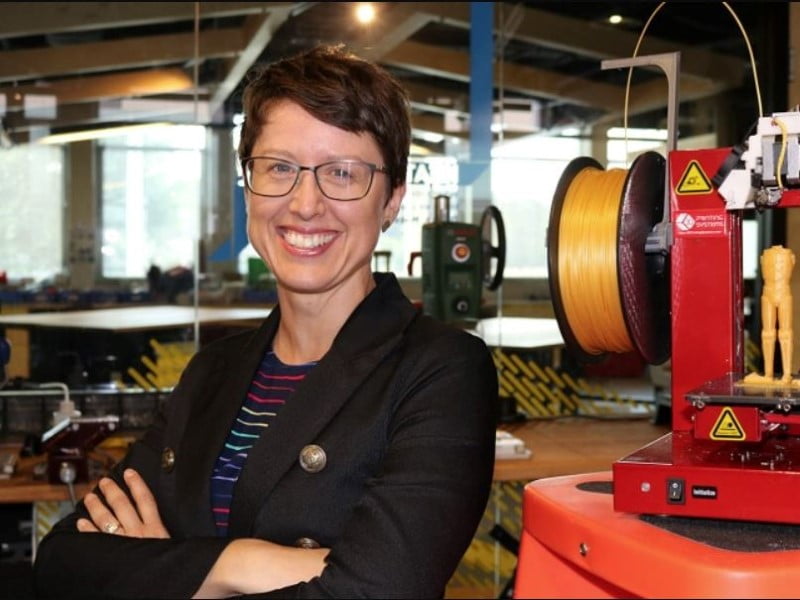Australia’s research and scientist groups have welcomed the commitment of strong discovery research funding and independence amid an overhaul of collaborative research funding, but have warned some tweaks to how grants are assessed could discourage “genuinely novel” research.
Earlier this month, acting education minister Stuart Robert sent a letter of expectations to the Australian Research Council (ARC) outlining reforms that will result in more research funding being restricted to six areas deemed to be national priorities by the government.
The changes mean 70 per cent of Linkage Program grants go to projects that align with the Coalition’s six manufacturing priorities: resource technology and critical minerals processing, space, medical products, food and beverage, Defence, and recycling and clean energy.
The criteria won’t be applied to the larger Discovery program, but the government has told the ARC to give more weight to applications that clearly identify the practical outcomes of their work.

This change could limit some discovery research, according to Australian Academy of Technology and Engineering (ATSE) chief executive Kylie Walker.
“We are pleased to see the government remain committed to developing new knowledge through investigator led research funding opportunities – the so-called blue-sky research,” Ms Walker told InnovationAus.
“However, the request that researchers articulate the practical outcomes of their work in line with Australia’s national interest must not be used to discourage genuinely novel research.
“Innovations such as ultrasound, WiFi, immunotherapy, and high-speed computing arose from research that would never have been labelled as directly serving the national interest at conception, but are now fundamental for Australia’s prosperity.”
Ms Walker said the changes to the Linkage Program was also likely to limit work.
“This new framing for existing funding is aligned with the Government’s previous announcements however we are concerned that 70% of research grants will go to manufacturing priorities, which potentially limits investment in areas such as clean energy, quantum, and agriculture.”
The Australian Academy of Science also welcomed to continuation of the Discovery Program.
“We welcome statements that indicate continued funding for basic science, at least at its present level, through the Discovery Program,” an Academy spokesperson told InnovationAus.
“Basic science is essential for the discovery, observation, and understanding of new knowledge, and importantly, it fuels commercialisation.”
Group of Eight universities – together responsible for around 70 per cent of Australian university-based research – backed the federal government’s move to align research funding to priorities while continuing to support discovery research.
“The Government’s decision to set a new direction for the ARC is timely in light of the challenges we face as a result of COVID and the changing demands of new and emerging industries,” Group of Eight Chief Executive Vicki Thomson said.
“The Morrison Government’s explicit commitment to retain a ‘strong publicly funded research agenda in Australia’s universities, particularly the blue-sky research delivered through the ARC Discovery Program’ is particularly important to Australia’s future prosperity.
“Blue-sky or basic research is critical because we know the opportunity to commercialise research can only arise from high-quality basic research.”
The Group of Eight had written to the government in the lead up to the latest changes, urging it to improve governance arrangements at the funding agency.
The changes that followed include a sharp focus on governance, mostly through a wider input to the agency beyond its traditional academic advisory council and college of experts.
Mr Robert has asked for a new advisory committee to guide the agency’s strategy that has “broad membership with substantial industry, research end-user and governance representation”, and for it to developed before the end of the year by outgoing ARC chief executive Professor Sue Thomas.
The minister has also requested the traditionally academic College of Experts responsible for grant recommendations be similarly broadened.
“We welcome the request to establish an ARC advisory committee, similar to that of the National Health and Medical Research Council,” ATSE chief Kylie Walker said.
“However, we believe it’s important that the independence of the ARC CEO, and their ability to communicate directly with the Minister, should be maintained. We also believe that to be truly effective, consideration must be given to the nomination of committee members, and caution against rushing this through before Professor Thomas leaves the post”.
Ms Walker also flagged the new business and end-user input in grant assessment panels could also be a blocker for curiosity-based research, and panels will need to be well considered.
The reforms were announced at a time when the government has failed to finalise next year’s ARC Discovery Program grants, which should be funding research from January.
The Group of Eight on Tuesday called for an urgent finalisation of the grants.
“Go8 researchers prepared and submitted applications almost 12 months ago, applicants’ responses to the assessment closed six months ago and some projects are scheduled to commence in a matter of weeks. The current delay is unprecedented and not seen in the 30-year history of this and similar funding rounds,” Ms Thomson said.
The Group of Eight chief said certainty was needed for the next round of Discovery projects or researcher may be forced to go elsewhere.
“Other potential consequences of further delay could see our talented researchers reassess their options and choose to move offshore or leave the sector. An urgent resolution to this delay would send the signal to our research community that reform is genuinely underway.”
Do you know more? Contact James Riley via Email.

